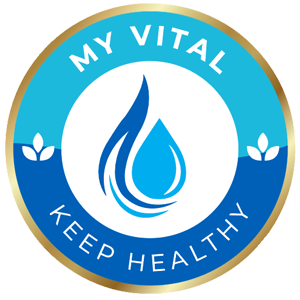Hydration is necessary for maintaining good health and overall well-being. With our bodies being about 60% water, it’s obvious that water plays an essential role in our daily lives. From keeping our body temperature in check to helping with digestion, hydration affects nearly every function of our bodies.
Let’s understand why hydration is so important and how it contributes to a healthier lifestyle.
The Function of Water in the Body
Water is important for many bodily functions, including:
- Maintaining Body Temperature: Water helps to maintain a constant temperature of the body through the process of sweating and breathing. This is vital during exercise and especially in hot weather.
- Digestion: Proper hydration is essential for digestive health. Water helps to break down nutrients in the food so that the body can absorb them. In addition, it also helps in moving food through the intestines and prevents constipation.
- Joint Lubrication: Water acts as a cushion to our joints, so when we move around, there wouldn’t be any friction in the joints. This could be very beneficial to people who are engaged in sports and those suffering from joint pains.
- Detoxification: Water helps flush out waste products from our bodies through urine, sweating, and bowel movements. Proper hydration keeps our kidneys in good condition to filter out the toxins from blood.
- Cellular Functions: Water is essential for the proper functioning of all of the cells in our bodies. It moves nutrients and oxygen to cells and carries away waste products.
Signs of Dehydration
Dehydration happens when our bodies lose more water than we take in, upsetting our body’s balance. Common signs of dehydration include:
- Thirst
- Dry mouth
- Fatigue
- Dark yellow urine
- Dizziness or lightheadedness
- Confusion or difficulty concentrating
Severe dehydration may further lead to serious medical conditions such as kidney stones, urinary infections, and heat stroke. Early identification of the signs and symptoms, followed by timely rehydration, is essential.
Tips for Staying Hydrated
Staying hydrated is simple but essential. Here are some practical tips to help you maintain proper hydration:
- Drink plenty of water: You should consume at least eight 8-ounce glasses of water per day. This rule can also be considered the “8×8 rule.” However, individual needs may differ based on age, weight, climate, and amount of physical activity.
- Hydrating foods: You should also consume some fruits and vegetables that have high water content, like watermelon, cucumber, oranges, and strawberries.
- Carry a water bottle: This will remind you to drink lots of water. Go for reusable bottles to reduce plastic waste.
- Set reminders: Use smartphone apps or set alarms to help you remember to drink water at regular intervals.
- Pay attention to the colour of your urine: If it’s slightly yellow or clear, that generally indicates you’re well-hydrated, but if it is dark yellow or amber in colour, you need to drink more water.
- Hydrate before, during, and after exercise: Physical activity enhances water loss through sweating. Therefore, drink water before, during, and after exercise to remain hydrated.
ConclusionHydration is the basis of good health, affecting our physical performance and our mental clarity both. Knowing why you need to be hydrated and adopting some rather simple habits for maintaining it will help you feel better and live a healthier, more energetic life. Keep in mind that water is way more than just a drink; rather, it is a life-sustaining element that nourishes your body and mind. Prioritise hydration and enjoy its many benefits for health!


Leave A Comment